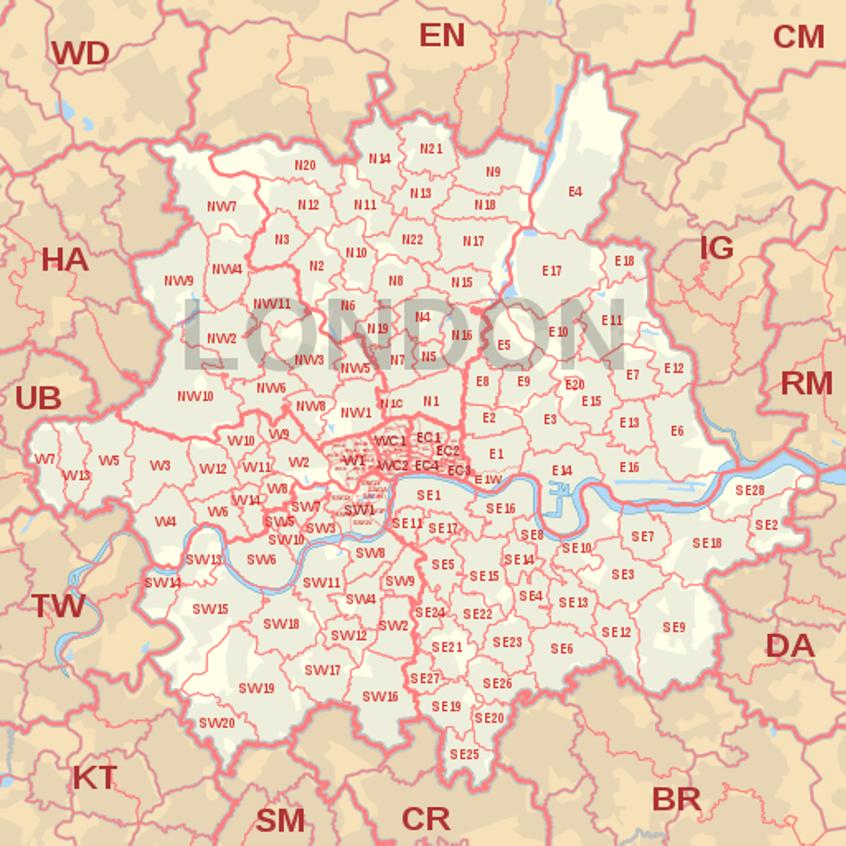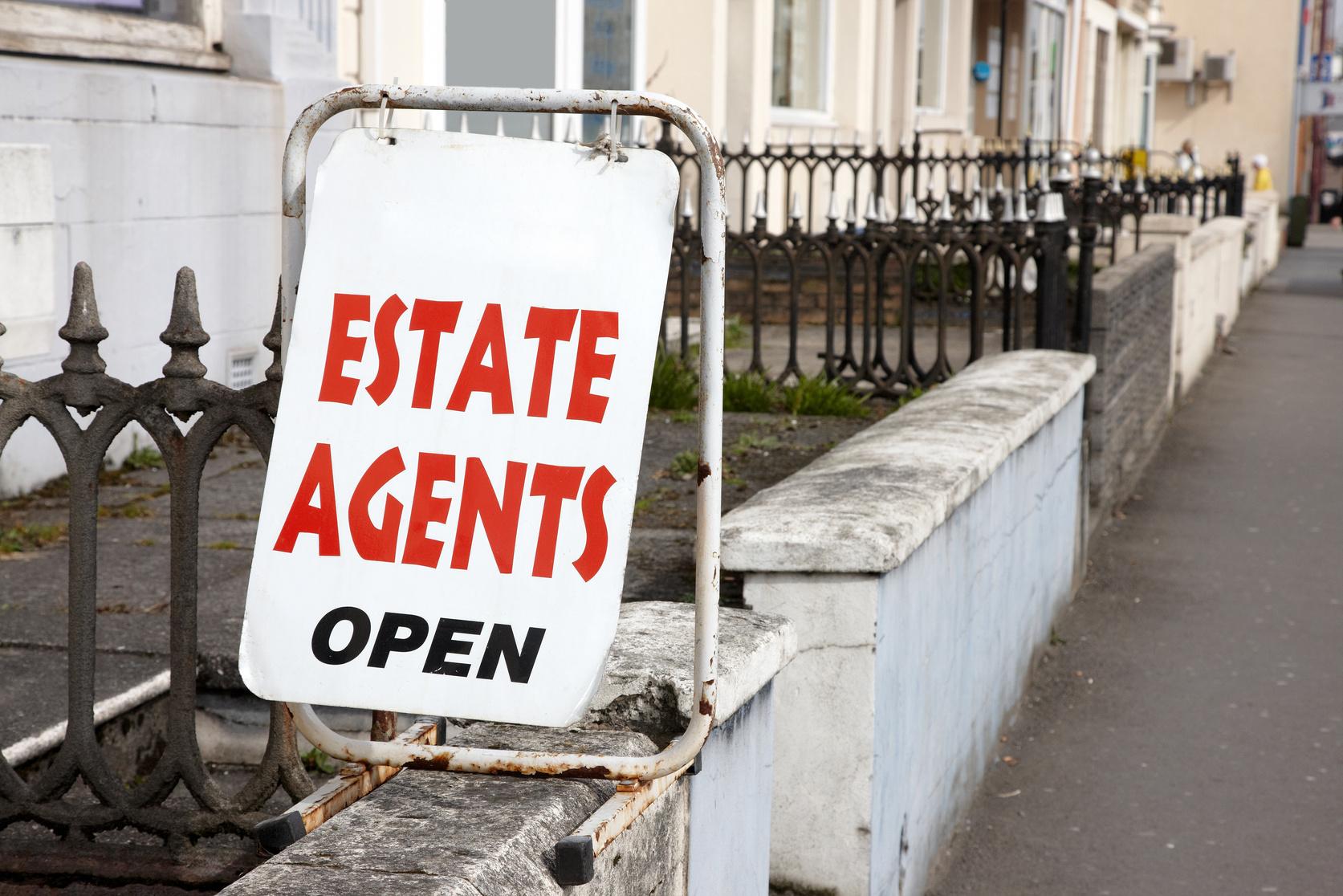RENTING IN LONDON







I have been living in London since 2016. My husband’s job transferred him here, and we were newly empty nesters with the last of our two sons off to university. So we thought, why not? Why not sell the house in Pasadena, get rid of most of our possessions, and pack up and move to London? We had been once before and loved it. We are native Californians, but both of us have lived various places. I’d lived in Berkeley, San Francisco, NYC (including Brooklyn), and Los Angeles. I knew I was a city girl who loved the stimulation and excitement of the big city. Pasadena was a smaller, more suburban city, and we stayed there because we were raising my children and our families lived in the area. But once we were done raising children, we were looking for our next adventure, and the offer to move to London came at the perfect time.
I had been working in real estate before we moved to London, working on a family team at Sotheby’s International in Pasadena, helmed by my mother who had more than 30 years’ experience. She brought me and my sister into the fold, but my background before that was in publishing and freelance writing, where I was a food writer.
When we first arrived, we were shown flats by a relocation company paid by my husband’s job. We stayed in corporate housing for 30 days whilst I did the flat search while he worked. I think I naively assumed that things worked the same way they did back in the States (both on the tenant side and also as an agent) …boy was I wrong. But I’ve learned a lot over the years. I’ve personally dealt with relocation companies as a client, I’ve been a tenant, I’ve purchased property, and I’m also a real estate agent, which they call an estate agent here.
I’ve had to learn some new terminologies and very different systems of renting and buying property. I’ve seen so many questions in the online ex-pat groups, and I’ve answered a lot of them as well. I created this e-book with the idea that this is something I wish I’d had when I first came to London. This e-book deals strictly with the processes of renting and purchasing property, not on matters regarding attaining a visa to come to the UK or other immigration issues. But if you have questions regarding UK visas, the UK government’s “How to Apply for a Visa To Come to the UK” is a good place to start.
I hope that you find the information in this guide helpful.
Lonnée Hamilton
Director, London Realty International
WhatsApp: +44 7535 604 111 Email: hello@londonrealtyinternational.com www.londonrealtyinternational.com
What type of apartment are you looking for? Are you sharing with a roommate? What style is best for you? Period? New build?
What kind of neighbourhood appeals to you?
How many bedrooms and bathrooms do you need?
What are you looking for in a kitchen?
What is your preferred layout?
What is your budget?
Are you looking for furnished or unfurnished

What about storage space? Closets? Basements, lockers?
Do you need a garage or extra parking spaces?
Do you have a pet?
How is your daily commute? How easy is it to get to the places you need to go?
How close do you need to be to transit, shopping, schools, hospitals?


London is undoubtedly one of the best cities in the world Its diverse culture, great career opportunities, and general high quality of life are all key features that make it an attractive destination for expats from across the globe. If you truly wish to unlock the full potential of London life, though, you must put the right preparations in place.
Here are some things you should do for the smoothest possible move Doing these in advance helped me with my move from Los Angeles to London. I hope that they help you as well.

London is one of the best cities in the world, but it’s also one of the most expensive The harsh reality, then, is that it’s likely you will need to downsize your property. Rather than transporting unneeded assets to London, use this as an opportunity to declutter and earn a little extra cash You can further support your preparations for life in London by going paperless and considering furniture with hidden storage – like ottomans and similar pieces
TV wall brackets and shelving can be used once you move in to aid the cause even more Facebook groups like Expat Swap Meet are good sources for pre-owned furniture. David Phillips offers full furniture packages both for purchase and rental of new furniture.
London is home to 14 million people Naturally, then the contrast of housing prices across different parts of the city is huge. As well as financial fluctuations, you’ll want to think about schooling, transports facilities, crime rates, and other factors that could influence your daily life in a big way. Moreover, you may want to look for an area with amenities that appeal to your background – whether it be cultural or recreational passions or hobby preferences.
If you are trying to narrow down an area based on travel commute, I recommend Zoopla’s Commuting Times Calculator. You aren’t only investing into a home; you ’ re starting a new life. Make it count.
Opening a UK bank account can be a little tricky if you try whilst you are still overseas Most UK banks require two forms of identification, one being a UK proof of address. Broadly speaking, these include:
a tenancy agreement or mortgage statement; a recent electricity or gas bill (less than 3 months old); a recent (less than 3 months old) bank or credit card statement that’s not printed off the internet; or a current council tax bill.
If you haven’t moved yet, or are still in transition with your housing situation, then your proof of address isn’t readily available and you may have to wait until you are settled in order to open the account
Alternatively, you could open a Wise.com borderless multi currency account, which allows you to pay and get paid in multiple currencies You can convert your money between the supported currencies for a small fee and transfer the money to a local bank account. You will also be able to get a debit card connected to your borderless account, which will make it even easier to pay for your life in the UK.
Your home bank may be able to set up an account for you if it has a correspondent banking relationship with a British bank. Many major UK banks also have so-called ‘international’ accounts. These are designed specifically for non-residents, so they’re a great option if you don’t have the documents to prove your UK address. In fact, you can even apply for an international account online. Barclays, Lloyds, HSBC and NatWest all offer international bank accounts
Some find online-only banks like Starling or Monzo an easier option than traditional banks

K al questions and are a great resource for asking questions about your move
Once you arrive in London, there are numerous social clubs for ex-pats like The American Women's Club in London, various university alumni networks, and The University Alumni Club of London. African American sororities AKA and the Deltas have London offshoots.
Private clubs have a long and storied history in London and many people join private clubs like The Arts Club or Soho House. Women's private clubs like The Allbright and The Wing can be useful in making social and business connections. Private clubs have a membership approval process and be prepared to pay as they are not inexpensive.

A lot of people make the mistake in thinking that just because the U S and the U.K. are both English speaking countries, that the terminology is going to be the same Generally speaking, it is But there are some crucial differences in the property business that might trip you up if you don't know them ahead of time


with the council as the council tax payee Council tax varies regarding the assessed value of the property and is grouped by bands.
Estate agent is what we call a real estate agent in the States Realtor is not a term used in the UK. An agent who specialises in letting is a letting agent.

Flat is an apartment. The term apartment is also used, but generally I’ve seen apartment used in luxury buildings Flat is the more commonly used term.
High street is what we could call the main street of a neighbourhood It’s where the majority of the shops and restaurants are located. Most London neighbourhoods have a high street.
Letting is the same as renting. Both terms are used but letting is more traditional. An apartment that has been rented has been let.
There are two primary portals used for property searches: Rightmove and Zoopla. These are the equivalent to Zillow in the States and what you will use for looking for property
Postcodes are the equivalent to Zip Codes. Postcodes in London are quite useful for gauging what area a property is in Generally speaking, the first part of the postcodes are the same as compass points: N = north; W= west; S = south; E= east; SW = southwest, etc
These directionals tell you what part of London the property is located. After the compass point comes a number 1 means that the location is closest to the center, with numbers getting higher the farther out you go. So a property in N1 is in north London but closest to the center. When people say South London, they are generally speaking about London south of the river, but there are postcodes such as SW in Chelsea and Fulham are north of the river.

Property is the term more commonly used than real estate. I’ve been seeing some estate agents use "real estate" lately (maybe because of the American real estate shows), but property is the term that most people use

A TV licence is required if you play any programme on a TV or computer or mobile phone if you watch live TV, or if you download BBC iplayer You can be fined if you watch TV without a licence.
VAT is sales tax and is charged for most goods or services

This is just a rough overall bird’s eye view of what neighbourhoods are located where I didn’t include every part of London But this is just to give you a larger sense. People all the time ask me what areas they should live in, but London neighbourhoods are so diverse, and it really depends on what you are looking for




Vibe:
Vibe:
Neighbourhoods include areas such as: Angel, Hampstead, Highgate, Belsize Park, St John’s Wood, Primrose Hill, West Hampstead, Golders Green, Crouch End and Hampstead Garden Suburb. Green, leafy, hills, parks, lots of American ex-pats (Hampstead, St. John’s Wood) Commuter friendly to The City (Angel) Neighbourhoods include areas such as: Shoreditch, Hoxton, De Beauvoir, Dalston, Spitalfields, London Fields, Columbia Road, Bow, Hackney Wick, Wapping, Stoke Newington, Bethnal Green, Canary Wharf and Hackney. Hip, trendy, urban, fun, cool, coffeehouses, Regent's Canal, Williamsburg, modern (Canary Wharf) EAST LONDON RENTING IN LONDON
Vibe: Classic London, posh, architecture, traditional, historic, the London you see in the movies, international. Calm outside the city (Richmond and Chiswick),

Vibe: South of the river, modern high rises (Battersea and Vauxhall), truly varied in neighbourhoods and prices, family friendly (Wimbledon and Clapham)
 Neighbourhoods include areas such as: Marylebone, Belgravia, Fitzrovia, South Kensington, Kensington, Chelsea, Notting Hill, Holland Park, Pimlico, Earl’s Court, Shepherd’s Bush, Maida Vale, Paddington. Richmond and Chiswick are farther out but still part of London
commuter-friendly (Paddington)
Neighbourhoods include areas such as: Greenwich, Brixton, Clapham, Vauxhall, Wimbledon, Peckham, Nine Elms, Battersea, and Bermondsey
Neighbourhoods include areas such as: Marylebone, Belgravia, Fitzrovia, South Kensington, Kensington, Chelsea, Notting Hill, Holland Park, Pimlico, Earl’s Court, Shepherd’s Bush, Maida Vale, Paddington. Richmond and Chiswick are farther out but still part of London
commuter-friendly (Paddington)
Neighbourhoods include areas such as: Greenwich, Brixton, Clapham, Vauxhall, Wimbledon, Peckham, Nine Elms, Battersea, and Bermondsey
If you are a fan of Brutalist architecture, you might want to live in The Barbican, built in the 1960s, it was one of the first mixed-used developments in the world. The concrete style isn’t for everyone, but I lived there for a couple of years and really enjoyed it. The Barbican complex itself has restaurants, cinemas, theatre and art galleries


This is a newly regenerated area of London with a very stylish shopping and dining area called Coal Drop’s Yard There are high-rise luxury housing developments. This area has its own new postcode N1C. It’s super convenient for transportation, being next to Saint Pancras and King’s Cross tube station. There is an American-size Waitrose for grocery shopping


This is the chapter I wish I had when I was first looking at properties when I arrived in London It’s the part that is the most different from what we are accustomed to in the US and the assumptions that the systems are the same will lead you down some convoluted paths that will leave you scratching your head wondering why you can’t get what you asked for

In the US, when you want to purchase or even rent a property, you might just ask around for a good agent or find one yourself… and then you expect this person will do the legwork of making calls, setting up viewings, filtering out the places that are absolute crap This form of estate agency DOES NOT EXIST IN THE UK in the same way. I’ve learned this the hard way, both as an agent and as a tenant
In the U.S. the real estate agent is not paid by the buyer or tenant, as they are paid from the seller or landlord’s side of the commission One reason this works this way is that there is a database called the MLS (multiple listing service), where agents can go and look for properties and see what they are going to get paid It’s all upfront For sales, commissions in the U.S. are typically paid 6%, with 3% going to the buyer’s agent and 3% for the selling agent. Leases are less money but still the agent is usually paid by the landlord (The system is a bit different in NYC). But basically, you as a buyer can pick up the phone, arrange a day of viewings with the agent and to have an agent representing you doesn’t cost anything for you out of pocket
The UK does not have an MLS So, what this means is that the properties you find on Rightmove or Zoopla are represented by the agents listing them. Let me make this clear… the agents with properties on Rightmove or Zoopla are not your agent They are the landlord’s agent or the seller’s agent and their job is to market the property and bring buyers or tenants to the property. Their contract is not with you. They have a contract with the property owner

UK 1% to 2%, so agents typically aren’t happy to split their commission with a buying or letting agent. Also FYI… most agents aren’t even paid commission. They are employees of the agency they work for.
The majority of property transactions occur in this way. Think of it as a pair of shoes... the agent has these shoes on the shelf and that’s all they’re going to show you What was confusing to me when I arrived was that I would walk into an agency thinking that the agent would find me what I want, when the reality was the agent would show me what they had on the shelf, if that make any sense Also, because the agent has you in their database, you get inundated with other properties they are trying to sell that don’t fit your criteria. You asked for a 2-bedroom with hardwood floors If they have you in their grasp on a day of viewings, they might to try to steer you to a 1-bedroom with carpet if they don’t have any more 2bedrooms with hardwood floors Now not every agent is this craven, but the quality varies a lot.
There are laws in place such as truth in advertising, so you are not unprotected. Also, I would say that the majority of agents want transactions to move smoothly and want happy people on both sides of the deal But there are some dodgy ones out there

However, in the UK there are some buyers and tenants who see the value of hiring their own agent. I think particularly if you are new to the UK and don’t want to get caught up in some obvious traps, it can be worth the money to have your own agent. If nothing else they act as a buffer between you and the vendor’s agent. If you are interested, you can take a look at my fees below

Property to Rent: I charge an upfront non-refundable retainer fee upon signing of agreement of £500 including VAT. This fee is deducted from the final Success Fee.
Success Fee: 4 weeks of rent including VAT.
A bit of self-promotion is in order I have represented buyers and sellers I have found my buyers off-market properties just because I had good rapport with the selling agent, who told me when a deal was coming up. Also, I spend a lot of time narrowing down and previewing properties for my clients so that they don’t waste time.
I had a young American couple from the Bay Area who had their heart broken trying to find their own flat for rent. They even paid a holding deposit, only to find out that the flat was rented to someone else. They didn’t realise that the property was on the market with multiple competing agents and in that scenario, whomever has a tenant who signs the lease first is the one who gets the apartment. They did get their deposit back, and I helped them find a place they loved but also helped them to avoid some of the classic traps that await the unaware or newly arrived.
Let’s get down to brass tacks. The majority of Americans moving to London usually start out as renters when they first arrive, even if they decide to buy at a later date People like to get a sense of the area, whether they like their neighbourhood and all that.

So here are the steps you will need to take in order to let your first London flat

If you aren t hiring an estate agent then you will need to invest some time searching for properties on the portals and schedule time to go to viewings You might need to adjust your expectations, as London is a very competitive rental market, and you might not see the amount of care and upkeep you would be accustomed to in the US. Of course this isn’t the majority, but bear in mind that landlords are basically in the driver’s seat and while it’s good to have high standards, you might have to relax them a bit in order to be chosen as the tenant. If you find a place you absolutely love, congratulations but take a temperature read Ask the agent if there have been a lot of viewings of the property. You can see on the portals how long it has been on the market. Most competitively priced flats are rented within a few days of being launched It can very much be a game of early bird gets the worm, so check the portals daily and be proactive.

Sometimes agents can take a while to respond. It’s not always their fault, as they are oftentimes outside the office conducting viewings Many respond at the end of the day when they are at their desk. It pays to be a bit persistent (whilst always being polite) and I usually call/WhatsApp and email in order to get hold of the agent to schedule the viewing
Before you start looking at flats, take some time to go to various neighbourhoods. Walk around. Check out the high street. Does it have the neighborhood amenities you are looking for? Grocery stores, cinemas, gym? Walk down some of the residential streets and see if this is the kind of place you want to call home.
year So £500/week x 52 weeks in a year = £26,000 a year Divide the yearly amount by 12 months £26,000/12 = £2,166.66 per month.
Similarly, if the property is marketed at a monthly rate of £2,000 per month, the weekly rate would be calculated at £2,000 x 12 month = £24,000 per year Divide that by 52 weeks and the weekly rent is £461 54
One popular rule for referencing is that you need to earn 2.5 times what you spend on rent So if you earn £2,500 per month before taxes, you should spend about £1,000 per month on rent. Sometimes a landlord will pay utilities, but usually that’s not the case Utilities include electricity, Internet, and water It’s not uncommon for tenants to offer 3 or 6 months of rent in advance, but it’s not necessary to do so to let a flat.

Other costs before you move in before you move in will include:
Your deposit, including both a holding deposit (up to 1 week's rent) and your standard security deposit (up to five weeks' rent if total annual rent is less than £50,000). Any removal fees such as hiring a van or a removal service Your first month's rent
But I’m getting a bit ahead of myself Let’s go back to the viewing
You’ve found your perfect London flat, but it’s furnished, and you hate the furniture. You want the landlord to take it all away and you want to furnish it yourself Don’t be surprised if that is a deal breaker, or the landlord comes back with a counter offer whereby you pay for transport and storage of their furniture and must replace it to where it was. It’s my experience that landlords might agree to take away small pieces but are often reluctant to move beds, sofas because they don’t have anywhere to keep it. Sometimes it may seem ridiculous because the sofa does not look like it’s worth the storage fees, but some landlords can be a bit stubborn Either put up with it and put a throw over the sofa, or pay for storage, or find an unfurnished flat if you feel that strongly about decor.
When you are at the viewing, take note of any cosmetic changes you might want because the time to ask for those are when the tenancy agreement is being drafted. I would test the waters with the agent showing the property to see what they think might be reasonable The landlord might not agree to your accent wall, but might agree for you to do it, if it’s painted back to the same colour before you move out But I would wait until my offer is accepted before I got too much into special requests. It is a negotiation with the landlord.

Congrats! The landlord loved you and thought you will make an amazing tenant. What’s next? Usually at that point you pay one week’s holding deposit (see Rent Calculations) and that takes the property off the market. Double check the portals to make sure the letting agent has taken it down.
At that point most landlords and letting agents send your details to a 3rd party referencing company. This part feels very intrusive to Americans. But you must provide all the information the referencing company requires and do so in a timely manner.
Referencing in the UK is thorough The referencing company will call your employer for proof of employment and might also ask for recent pay slips and bank statements. Previous and current landlords are usually called If there are any issues with the referencing company speaking to them or if there are other issues that might raise a red flag, it’s best to be upfront with the landlord so that it does not appear that you are hiding something If you fail referencing because of a lie you have told, then the landlord is able to keep the holding deposit as payment against wasting their time. After referencing is complete, the decision to move ahead is that of the landlord, not the letting agent

Students in the UK often pay 6 months in advance and are often asked to have a Guarantor who will be responsible for paying the rent if the student cannot. Students need to provide proof of enrollment at university they are attending. Students do not need to pay council tax. Some landlords will only accept UK guarantors If that is a problem, there are 3rd party private guarantors like Housing Hand or Rent Guarantor that you can use Students should request individual rather than joint tenancies, so that one student or one guarantor isn’t responsible for everyone ’ s rent.

Letting agents and landlords have to be sure that anyone letting a flat in the UK has the right to be in the country and need to conduct a Right to Rent check which means that they will need to see originals of your passport and biometric residence card If you are in the UK on a 6-month tourist visa, then you cannot rent an apartment for longer than you have the right to stay in the UK, meaning you won’t be able to sign a year-long lease I have had one client who signed a 6-month lease, but most landlords won’t want to deal with that if they can get a longer-term tenant. If that is your situation, I think it’s better for you to try to negotiate terms with a landlord on short term rental platforms like Airbnb or Plum Guide, which has a strict vetting process for homes.
You’ve made all the right moves and have passed referencing. Hurrah! Here’s where you need to pony up the cash The landlord/letting agent will register the 5 weeks deposit. So you will need to pay an additional 4 weeks because you ’ ve already paid one week as a holding deposit. You will receive a certificate with a code number that you can enter to double check that your deposit is registered.

This is where the terms of the tenancy agreement come into play If you are asking for a break clause, minor repairs or touch-up cosmetic work ask for it now. The landlord knows that they have a good tenant, so this is really the only point where you have leverage But be reasonable There’s no point going through all of this and unleashing an avalanche of demands that put the tenancy in jeopardy Because until the lease is signed there is no deal and both parties can walk away.
As mentioned previously, most residential tenancy agreements in London are ASTs (Assured Shorthold Tenancy) Flats rented by a business would be under a Common Lease, not an AST
A tenancy agreement should include:

• the names of all people involved
• the rental price and how it’s paid
• information on how and when the rent will be reviewed
• the deposit amount and how it will be protected
• details of when the deposit can be fully or partly withheld (for example to repair damage you ’ ve caused)
• the property address
• the start and end date of the tenancy
• any tenant or landlord obligations
• an outline of bills you ’ re responsible for
It can also include information on:
• whether the tenancy can be ended early and how this can be done
• who’s responsible for minor repairs (other than those that the landlord is legally responsible for)
• whether the property can be let to someone else (sublet) or have lodgers
A break clause is a clause in a fixed-term Tenancy Agreement that allows the lease to be ended early There is no standard format for a break clause Break clauses are not mandatory Usually, both tenant and landlord can exercise the break clause. A typical break clause would allow either party to end the lease with two months’ notice after the first 6 months Meaning, if the tenant or landlord wished to end the least at the beginning of the break clause (month 6), then notice would need to be given in writing at month 4 of the lease Break clauses can give tenants an out to a longer-term lease, however it can work both ways depending on the wording of the clause, with the landlord giving notice to the tenant as well.

Important letting terminology so that you understand what is being discussed and what is at stake in your property letting experience.

Assured Shorthold Tenancy (AST) is the most common form of lease/tenancy agreement for letting a residential property with rents up to £100,000 per year If your rent is more than £100,000 per year, you would sign a Common Lease, but the vast majority of residential leases will be ASTs. Citizen’s Advice provides guidance as to what a tenancy agreement should contain

Break clause lays out the ways in which a lease may be “broken” before the end of the fixed term The wording of the break clause should be carefully gone over. Shelter goes into much more detail about the various kinds of break clauses. Just know that the lease is a legal document and whatever you sign in the lease will be hard to change at a later date
Fixed term tenancy agreement is a lease that lasts for a set amount of time, usually six months to a year Unless there is a break clause, the tenant is responsible for all of the rent in the fixed term. After a fixed term tenancy agreement ends, it may be renewed as another fixed term tenancy agreement Unless the tenant gives notice, a fixed-term tenancies converts to a periodic tenancy, or what we would call month-to-month in the States.
Gas Safety Certificate should be provided by the landlord or letting agent if you have any gas appliances in the property upon signing of your tenancy agreement
Guarantor is someone who agrees to be responsible for the payment of your rent should you not be able to pay it A guarantor is usually a family member or close friend. They should have a good credit rating. Some landlords require guarantors to be UK based and property owners
HMOs (Houses of Multiple Occupancy) are properties where three or more unrelated people share a common area like a bathroom or kitchen HMOs must be licensed.
How To Rent Guide is provided by the UK government It has been provided in Chapter 7. You should receive one from the landlord or letting agent upon signing of your tenancy agreement.
IN LONDON
Inventory is a check-in report about the physical state of the property. Tenants can pay to have a professional inventory done, or do their own inventory by taking photos Landlords may also have their own inventory done. Regulations in the UK tend to favour landlords, so it’s in your best interest to have as complete an inventory done as possible.
Periodic tenancy is what we would call a month-to-month agreement in the States All fixed term tenancies automatically become periodic tenancies unless the tenant gives written notice to the landlord.
Tenancy deposit scheme or deposit protection scheme Unlike in the US, the word “scheme” in the UK doesn’t have nefarious connotations of something shady. It just means a plan or policy in government or business. Tenancy deposits are held by a third party that protects your funds from being stolen. After you sign the tenancy agreement and pay the full security deposit, the landlord or letting agent must register your deposit in the scheme and provide you with a certificate
Since 2019, tenant fees are illegal. Letting agents and landlords are not allowed to require tenants to pay for things like inventory or agency fees More information about the Tenant Fees Act is available at https://www.gov.uk/government/publications/tenant-fees-act-2019guidance

I know so many words And you are a busy person Here's what you need to know about renting a property in a nutshell. I do think though, that you might find the long version helpful But these are the Cliff's


02 03 04
Search for properties on the portals (Rightmove, Zoopla)
Attend viewings
Make offer / Offer accepted
Pay holding deposit (one week’s rent to be applied to security deposit)
05 Go through referencing (provide all requested documentation quickly).

If you are using a Guarantor they will usually be required to go through some form of referencing. Requirements will change whether the Guarantor is in the UK or outside the country..

Sign tenancy agreement. Along with the lease signed by both parties, your landlord must also have given you a copy of the leaflet ‘How to rent: the checklist for renting in England’, an energy performance certificate, and a gas safety certificate if there are any gas appliances.
Pay security deposit – 5 weeks for rent under £50k per year; 6 weeks rent for over £50K per year Pay one month’s rent (or more if part of tenancy agreement).
Receive security deposit registration certificate

Conduct your own inventory or agree to landlord’s inventory if amenable.

10 Move in.
IN LONDON



1. Assured shorthold tenancies 3
2. Before you start 4
Key questions 4
Ways to rent a property 5
3. Looking for your new home 6 Things to check 6 Licensing requirements 8
4. When you’ve found a place 9 Check the paperwork 9
5. Living in your rented home 11
The tenant must… 11 The tenant should… 11 The landlord must… 12 The landlord should… 12
6. At the end of the fixed period 13
If you want to stay 13
If you or the landlord want to end the tenancy 13
7. If things go wrong 15
Protection from eviction 16
8. Further sources of information 17
Please be aware that some advice in this guide may be affected by the latest coronavirus (COVID-19) guidance for renting.
Please refer to guidance for landlords, tenants and local authorities reflecting the current COVID-19 outbreak.
The landlord, or the letting agent, should give the current version of this guide to the tenant when a new assured shorthold tenancy starts. There is no requirement for a landlord to provide the document again if the assured shorthold tenancy is renewed, unless the document has been updated.
This guide is for people who are renting a home privately under an assured shorthold tenancy, either direct from a landlord or through a letting agency. Most of it will equally apply if you are in a shared property but in certain cases, your rights and responsibilities will vary
The guide does not cover lodgers (people who live with their landlord) or people with licences (such as many property guardians – see this specific guidance) – nor tenants where the property is not their main or only home.
When you enter an assured shorthold tenancy – the most common type – you are entering into a contractual arrangement.
This gives you some important rights as well as some responsibilities.
This guide will help you to understand what your rights are, what responsibilities you have and what questions to ask.
This will help you create a positive relationship with your landlord, but will also tell you how to get help if things go wrong.
Take your time to read documents and contracts carefully. When you rent a home, people sometimes expect you to make a quick decision, or to sign documents before you’ve had time to think about them.
You shouldn’t feel forced into a decision and it is important to understand the terms and conditions of any contract you are agreeing to before you sign it.
Your landlord must provide you with a copy of this guide, so use the checklist and keep it safe to protect yourself from problems at every stage.
£ Is the landlord or letting agent trying to charge any fees? For example, for holding the property, viewing the property or setting up a tenancy agreement? Since 1 June 2019, most fees charged in connection with a tenancy are banned. A charge to reserve a property is permitted but it must be refundable and it cannot equate to more than 1 weeks’ rent. Viewing fees and tenancy set-up fees are not allowed. See ‘Permitted fees’ below for more details.
£ How much is the deposit? Since 1 June 2019, there has also been a cap on the deposit that the tenant is required to pay at the start of the tenancy. If the total annual rent is less than £50,000, the maximum deposit is 5 weeks’ rent. If the annual rent is £50,000 or above, the maximum deposit is 6 weeks’ rent. The deposit must be refundable at the end of the tenancy, usually subject to the rent being paid and the property being returned in good condition, and it must be ‘protected’ during the tenancy. See ‘Deposit protection’ below.
£ How long do you want the tenancy for? The landlord must allow you to stay in the property for a minimum of 6 months. Most landlords offer tenancies for a fixed term of 6 or 12 months. However, it is possible to negotiate a longer tenancy. Alternatively, you could agree to a tenancy which rolls over on a weekly or monthly basis. These tenancies have no fixed end date, but the landlord must allow you to stay in the property for at least 6 months.
£ What can you afford? Think about how much rent you can afford to pay: 35% of your take-home pay is the most that many people can afford, but this depends on what your other outgoings are (for example, whether you have children).
£ Are you are entitled to Housing Benefit or Universal Credit? If so, you may get help with all or part of your rent. If you are renting from a private landlord you may receive up to the Local Housing Allowance (LHA) rate to cover or help with the cost of rent. Check with this online calculator to see if you can afford to live in the area you want. You should also look at this advice about managing rent payments on Universal Credit
£ Which area you would like to live in and how you are going to look for a rented home? The larger the area where you are prepared to look, the better the chance of finding the right home for you.
£ Do you have your documents ready? Landlords and agents will want to confirm your identity, immigration status, credit history and possibly employment status.
£ Do you have the right to rent property? Landlords in England must check that all people aged 18 or over, living in their property as their only or main home have the right to rent. Landlords must carry out this check before the start date of your tenancy agreement. There are two types of right to rent checks; a manual document-based check or a check via the Home Office online checking service. Your landlord can’t insist which option you choose but not everyone can use the online service.
Further information on how to prove your right to rent to a landlord can be found on GOV.UK
£ Will you need a rent guarantor? Some landlords might ask someone to guarantee your rent. If you don’t have a guarantor, you can ask Shelter for advice.
£ Look for landlords who belong to an accreditation scheme. Accreditation schemes provide training and support to landlords in fulfilling their legal and ethical responsibilities. Your local authority can advise you about accreditation schemes operating in your area. The National Residential Landlords Association and the Guild of Residential Landlords run national schemes.
£ Letting agents must be a member of a redress scheme. You should check which independent redress scheme the agent is a member of in case you have an unresolved dispute.
£ If they receive money from you such as rent payments, you should also check they are a member of a client money protection scheme. See a list of approved schemes. By law, this information should also be clearly visible to you at the agent’s premises and on their website.
£ Reputable agents are often accredited through a professional body such as ARLA Propertymark, GPP , Safeagent, RICS or UKALA
Be clear who you are handing money over to, and why.
£ Deposit cap. Check that the tenancy deposit you’re being asked for is not more than 5 weeks’ worth of rent (where annual rent is less than £50,000) or 6 weeks’ rent (where annual rent is more than £50,000).
£ Deposit protection. If the landlord asks for a deposit, check that it will be protected in a government approved scheme. Some schemes hold the money, and some insure it. You may be able to access a bond or guarantee scheme that will help you put the deposit together. Contact your local authority for advice.
£ You may be offered a deposit replacement product as an alternative to a cash deposit. A landlord or agent cannot require you to use a deposit replacement product but may allow it as an option without breaking the Tenant Fees Act. There are several different deposit replacement products available on the market. Depending on the product, you may be required to pay a nonrefundable fee up-front (often equivalent to one week’s rent) and/or a monthly payment for the duration of your tenancy. With most products you will still be responsible for the costs of any damages incurred at the end of the tenancy or required to pay an excess on any claim for damages or unpaid rent. It is strongly advised to always check the terms and conditions and to see if it is regulated by the Financial Conduct Authority (FCA)
£ Length of tenancy. There is usually a fixed period of 6 or 12 months. If you want more security, it may be worth asking whether the landlord is willing to agree to a longer fixed period. Alternatively, you may be offered a weekly or monthly assured shorthold tenancy which does not last for a fixed period. Even with those tenancies, however, the landlord must allow you to stay in the property for a minimum of 6 months.
£ Smoking and pets. Check if there are any rules about them, as well as for other things such as keeping a bike, dealing with refuse and recycling.
£ Bills. Check who is responsible for bills such as electricity, gas, water and council tax. You or the landlord? Usually the tenant pays for these. Advice on paying bills is available here
£ Fixtures and fittings. Check you are happy with them, as it is unlikely that you will be able to get them changed once you have moved in.
£ Smoke alarms and carbon monoxide detectors. Landlords must have at least one smoke alarm installed on every storey of a property they let out. In addition, if you have solid fuel appliances like wood burning stoves or open fires, check carbon monoxide detectors must be provided. If not, your landlord must install them. They could save your life.
£ Safety. Check that the property is safe to live in. Use the How to rent a safe home guide to help you identify possible hazards.
£ Fitness for human habitation. Your property must be safe, healthy and free from things that could cause serious harm. If not, you can take your landlord to court. For more information, see the tenants’ guide on using the Homes (Fitness for Human Habitation) Act 2018. You should also check whether your tenancy agreement excuses you from paying rent should the building become unfit to live in because of, for example, a fire or flood.
Make sure you have the name of your landlord and an address in England or Wales where the landlord will accept service of notices, in writing. Landlords are obliged to provide you with this information and the rent is not ‘lawfully due’ until they do so.
If the property is a flat, ask whether the landlord is the owner or leaseholder of the flat, and ask whether the freeholder, for example the owner of the block, has agreed to the flat being let out. If the landlord has a mortgage ask whether the mortgage company has agreed to the letting. The landlord may not need the freeholder’s consent but, if there is a mortgage, the lender’s consent will always be needed. Be aware that you may have to leave the property if the landlord does not keep up the mortgage payments.
If the property is a house, ask whether the landlord is the owner, whether the landlord has a mortgage and whether the mortgage company has agreed to the letting. You may have to leave the property if the landlord does not keep up the mortgage payments.
If the ‘landlord’ is not the property owner – and they claim to be a tenant, a family member or a friend, be very cautious, as it could be an unlawful sub-letting.
The government’s guidance on the Tenant Fees Act contains information about the fees that letting agents and landlords are prohibited to charge tenants, as well as the fees that are permitted.
Permitted fees are as follows:
£ rent
£ a refundable tenancy deposit capped at no more than 5 weeks’ rent where the total annual rent is less than £50,000, or 6 weeks’ rent where the total annual rent is £50,000 or above
£ a refundable holding deposit (to reserve a property) capped at no more than 1 week’s rent
£ payments associated with early termination of the tenancy, when requested by the tenant
£ payments capped at £50 (or reasonably incurred costs, if higher) for the variation, assignment or novation of a tenancy £ payments in respect of utilities, communication services, TV licence and Council Tax
£ a default fee for late payment of rent and replacement of a lost key/security device giving access to the housing, where required under a tenancy agreement
All other fees, including the following, are banned:
£ viewing fees, any charge for viewing the property
£ tenancy set up fees, any charge for setting up the tenancy or contracts
£ check out fees, any charge for leaving the property
£ third party fees, any charge for anything that is done by someone other than the landlord or tenant but that the landlord must pay for
HMOs are usually properties where three or more unrelated people share facilities such as a kitchen or bathroom.
Some HMOs must be licensed. Check that your landlord has the correct licence. Landlords of licensed HMOs must by law give tenants a statement of the terms on which they live in the property.
Some single family dwellings may also need to be licensed. Check with your local authority whether the house is within a selective licensing scheme area. Selective licensing enables a local housing authority to require all landlords of privately rented housing in a designated area to obtain a licence for each individual property. It gives the local housing authority powers to inspect properties and enforce standards to address specific property issues.
£ Tenancy Agreement. Make sure you have a written tenancy agreement and read it carefully to understand your rights and responsibilities before you sign it. The landlord or agent usually provides one, but you can ask the landlord or agent to consider using a different version instead. The government has published a model tenancy agreement which can be downloaded for free. If you have any concerns about the agreement, seek advice before you sign. If you are unhappy with the tenancy agreement, the Tenant Fees Act allows tenants to walk away from unfair terms without forfeiting the holding deposit.
£ Inventory. Agree an inventory (or check-in report) with your landlord before you move in and, as an extra safeguard, make sure that you take photos. This will make things easier if there is a dispute about the deposit at the end of the tenancy. If you are happy with the inventory, sign it and keep a copy. From 1 June 2019, landlords/letting agents cannot charge certain fees – see the government’s guidance for more information.
£ Meter readings. Remember to take meter readings when you move in. Take a photo showing the meter reading and the date and time, if possible. This will help make sure you don’t pay for the previous tenant’s bills.
£ Contact details. Make sure that you have the correct contact details for the landlord or agent, including a telephone number you can use in case of an emergency. You are legally entitled to know the name and address of your landlord.
£ Code of practice. Ask whether your landlord or agent has signed a code of practice, which may give you additional assurance about their conduct and practices.
£ A copy of this guide ‘How to rent: the checklist for renting in England’ when a new tenancy starts as a printed copy or, if you agree, via email as a PDF attachment.
£ A gas safety certificate. The landlord must provide you with a copy of this certificate before you enter into occupation of the property and must give you a copy of the new certificate after each annual gas safety check, if there is a gas installation or appliance.
£ Deposit paperwork. If you have provided a deposit, the landlord must protect it in a government approved scheme within 30 days and provide you prescribed information about it. Make sure you get the official information from your landlord, and that you understand how to get your money back at the end of the tenancy. Keep this information safe as you will need it later.
£ The Energy Performance Certificate (EPC). Your landlord must provide you with a copy of the EPC, which contains the energy performance rating of the property you are renting, free of charge at the onset of your tenancy. As of April 2020, all privately rented properties must have an energy performance rating of EPC Band E or above (unless a valid exemption applies) prior to being let out. You can also search online for the EPC and check its rating on https://www.epcregister.com/
£ A record of any electrical inspections
£ Under the Electrical Safety Standards in the Private Rented Sector (England) Regulations 2020, landlords have to get their property electrics checked at least every five years by a properly qualified person. This applies to new tenancies from 1 July 2020 and existing tenancies from 1 April 2021. The electrics must be safe and your landlord must give you proof of this. For more information please see our guidance on electrical safety standards in the private rented sector
£ Evidence that smoke alarms and any carbon monoxide alarms are in working order at the start of the tenancy. Tenants should then regularly check they are working.
£ Pay the rent on time. If your rent is more than 14 days late, you could be liable for a default fee. A default fee for late payment of rent is limited by the Tenant Fees Act to interest on the outstanding amount, capped at 3% above Bank of England base rates. The landlord/agent cannot charge any other fees. For more information, please read the Government’s guidance for tenants on the Tenant Fees Act 2019. Further, you could lose your home because you have breached your tenancy agreement. If you have problems, GOV.UK has links to further advice. Check out these practical steps for paying your rent on time
£ Pay any other bills that you are responsible for on time, such as council tax, gas, electricity and water bills. If you pay the gas or electricity bills, you can choose your own energy supplier.
£ Look after the property. Get your landlord’s permission before attempting repairs or decorating. It’s worth getting contents insurance to cover your possessions too, because the landlord’s insurance won’t cover your things.
£ Be considerate to the neighbours. Anti-social behaviour may be a reason for your landlord to evict you.
£ Not take in a lodger or sub-let without checking whether you need permission from your landlord.
£ Make sure you know how to operate the boiler and other appliances and know where the stopcock, fuse box and any meters are located.
£ Regularly test your smoke alarms and carbon monoxide detectors – at least once a month.
£ Report any need for repairs to your landlord. If you think there are any repairs that are needed, you should report these to your landlord. Failure to report the need for repairs could be a breach of your tenancy agreement. In extreme circumstances there may be a risk to your deposit if a minor repair turns into a major problem because you did not report it.
£ Consider obtaining insurance for your contents and belongings – the landlord will usually have insurance for the property but it will not cover anything that belongs to you.
£ Consider if having a smart meter installed would save you money, if you are responsible for paying the energy bills. Read guidance about your rights and information about how to get a smart meter. We’d recommend that you tell your landlord before you get one.
£ And don’t forget to register to vote
£ Maintain the structure and exterior of the property.
£ Ensure the property is free from serious hazards from the start of and throughout your tenancy.
£ Fit smoke alarms on every floor and carbon monoxide alarms in rooms with appliances using solid fuels – such as coal and wood – and make sure they are working at the start of your tenancy. If they are not there, ask your landlord to install them.
£ Deal with any problems with the water, electricity and gas supply.
£ Maintain any appliances and furniture they have supplied.
£ Carry out most repairs. If something is not working, report it to your landlord or agent as soon as you can.
£ Arrange an annual gas safety check by a Gas Safe engineer (where there are any gas appliances).
£ Arrange a five-yearly electrical safety check by a qualified and competent person (this applies to new tenancies from 1 July 2020 and existing tenancies from 1 April 2021).
£ Seek your permission to access your home and give at least 24 hours’ notice of proposed visits for things like repairs and those visits should take place at reasonable times – neither the landlord nor the letting agent is entitled to enter your home without your express permission.
£ Get a licence for the property if it is a licensable property.
£ Ensure the property is at a minimum of EPC energy efficiency band E (unless a valid exemption applies).
£ Insure the building to cover the costs of any damage from flood or fire.
£ Check regularly to ensure all that products, fixtures and fittings provided are safe and that there haven’t been any product recalls. Help is available at the Royal Society for the Prevention of Accidents (ROSPA), Trading Standards and the Child Accident Prevention Trust
£ Ensure blinds are safe by design and they do not have looped cords. This is especially important in a child’s bedroom. More information can be found at https://www.rospa.com/campaignsfundraising/current/blind-cord
Should you wish to extend your tenancy after any initial fixed period, there are a number of important issues to consider. Check Shelter’s website for advice.
Do you want to sign up to a new fixed term?
If not, you will be on a ‘rolling periodic tenancy’. This means you carry on as before but with no fixed term – your tenancy agreement should say how much notice you must give the landlord if you want to leave the property – one month’s notice is typical. Shelter publishes advice on how you can end your tenancy.
Your landlord can increase your rent by agreement, or as set out in your tenancy agreement, or by following a procedure set out in law
The deposit cap introduced by the Tenant Fees Act 2019 means you may be entitled to a partial refund of your tenancy deposit. The government’s guidance on the Act explains whether this affects you.
The government has announced that it plans to put an end to ‘no fault’ section 21 evictions by changing existing legislation. Landlords will still be able to issue you with a section 21 possession notice until new legislation comes into effect. If you receive a section 21 notice from your landlord, seek advice from Shelter or Citizens Advice. If you are eligible for legal aid, you can also contact Civil Legal Advice for free and confidential advice.
There are things that both landlords and tenants must do at the end of the tenancy:
It is a legal requirement for landlords to give you proper notice if they want you to leave, and they can only legally remove you from your home with a court order. Normally, the landlord must allow any fixed period of the tenancy to have expired, and they must have given you the correct period of notice, which varies depending on the type of tenancy and the reason your landlord wants you to leave.
If you have been served with a notice that your landlord wants you to leave, you should read it at once. The notice should contain helpful information. Acting on it straight away may, in certain circumstances, allow you to keep your home. If you are unsure how to respond or worried that you will become homeless, you should access advice and support as soon as possible, for example through contacting Citizens Advice and/or Shelter, who can provide free, expert advice on your individual circumstances. If you are eligible for legal aid, you can also contact Civil Legal Advice for free and confidential advice.
For more information about your rights and responsibilities when your landlord wants you to leave your home, see Understanding the possession action process: A guide for private landlords in England and Wales.
Your tenancy agreement should say how much notice you must give the landlord if you want to leave the property. One month’s notice is typical. If you want to leave the property, you must give notice to your landlord in writing – make sure you keep a copy of the document and a record of when it was sent. Please see ‘If things go wrong’ below if you wish to leave sooner than the notice period set out in the tenancy agreement.
Make sure that your rent payments are up to date. Do not keep back rent because you think that it will be taken out of the deposit.
Do not leave bills unpaid. This might have an impact on your references and credit rating.
Remove all your possessions, clean the house, dispose of rubbish and take meter readings. Try to leave the property in the same condition that you found it in. Check this against your copy of the inventory and take photos that show how you have left the property. Dispose of any unwanted furniture via a local collection service.
Return all sets of keys that were provided. If you do not, the landlord may charge you for changing the locks.
Try to be present when the property is inspected to check whether any of the tenancy deposit should be deducted to cover damage. If you do not agree with proposed deductions contact the relevant deposit protection scheme
Most problems can be resolved quickly and easily by talking to your landlord or letting agent.
There are often legal protections in place too for the most common problems that you may experience during the tenancy – the following links will tell you what they are or where to look for help:
£ If you have a complaint about a letting agent’s service and they don’t resolve your complaint, you can complain to an independent redress scheme. Letting agents must be a member of a government approved redress scheme.
£ If you wish to leave the property within the fixed term, or more quickly than permitted in the tenancy agreement you should discuss this with your landlord. If your landlord or letting agent agrees to end the tenancy early, you should make sure that this is clearly set out in writing and that you return all your sets of keys. If you do not, your landlord may make a court claim against you, to obtain possession of the property. You could be charged if you want to end the tenancy early, although this fee must not exceed the loss incurred by the landlord or the reasonable costs to your letting agent if you are renting through them. Unless or until a suitable replacement tenant is found, you will be liable for rent until your fixed-term agreement has ended or, in the case of a statutory periodic tenancy, until the required notice period under your tenancy agreement has expired. The government’s guidance on the Tenant Fees Act contains more information.
£ If you are having financial problems, or are falling into rent arrears, speak to your landlord as they may be helpful, and are likely to be more sympathetic if you talk to them about any difficulties early on. Should you need further help contact your local housing authority, Citizens Advice or Shelter as soon as possible. If you are eligible for legal aid, you can also contact Civil Legal Advice for free and confidential advice. Check out these practical steps for managing your rent payments
£ If the property is in an unsafe condition and your landlord won’t repair it – contact your local authority. They have powers to make landlords deal with serious health and safety hazards. You can also report this to your local Trading Standards.
£ You may be able to take your landlord to court yourself if you think the property is not fit for habitation, under the Homes (Fitness for Human Habitation) Act 2018. The court can make the landlord carry out repairs and can also make the landlord pay you compensation. You may also be able to take your landlord to court if they do not carry out some repairs. For more information, please see the Shelter advice on section 11 of the Landlord and Tenant Act 1985.
£ If you have a serious complaint about the property and your local authority has sent a notice to the landlord telling them to make repairs, your landlord may not be able to evict you with a section 21 notice (no fault eviction) for 6 months after the council’s notice. You can still be evicted with a section 8 notice if you break the terms of your tenancy.
£ Failure to comply with a statutory notice is an offence. Depending on the notice, local authorities may prosecute or fine the landlord up to £30,000. Local authorities have powers to apply for banning orders which prevent landlords or property agents from managing and/ or letting out property if they are convicted of certain offences. If a landlord or property agent receives a banning order, they will be added to the Database of Rogue Landlords and Property Agents. There is a specific process for this, which can be found here.
£ If a landlord or letting agent charges you a prohibited payment (a banned fee according to the Tenant Fees Act 2019) or unlawfully retains a holding deposit they could be liable for a fine of up to £5,000 and if there are multiple breaches they could be liable for a fine up to £30,000 as an alternative to prosecution. Local authorities are responsible for issuing these fines. Landlords or letting agents cannot rely on giving notice under section 21 to obtain a possession order if they have not repaid any unlawful fees or deposits they have charged under the terms of the Act.
£ If your landlord is making unannounced visits or harassing you – contact your local authority, or if more urgent dial 999.
£ If you are being forced out illegally contact your local authority. Shelter and Civil Legal Advice (see Help and Advice below) may also be able to help you. If your landlord wants you to leave the property, they must notify you in writing, with the right amount of notice. You can only be legally removed from the property if your landlord has a court order for possession and a warrant is executed by court bailiffs or sheriffs.
£ If you live with your partner and you separate, you may have the right to carry on living in your home.
£ If you are concerned about finding another place to live, then contact the Housing Department of your local authority straight away. Depending on your circumstances, they may have a legal duty to help you find accommodation and they can also provide advice. The local authority should not wait until you are evicted before taking action to help you.
If you are concerned about finding another place to live, then contact the Housing Department of your local authority straight away.
Landlords must follow strict procedures if they want you to leave your home. They may be guilty of harassing or illegally evicting you if they do not follow the correct procedures.
Landlords must provide you with the correct notice period and they can only legally remove you from your home by obtaining a court order for possession and arranging for a warrant to be executed by court bailiffs or sheriffs. See Understanding the possession action process: A guide for private residential tenants in England and Wales
Rent Repayment Orders require a landlord to repay a specified amount of rent to a tenant and/ or a local authority, where there has been, for example, an illegal eviction or failure to licence a property that requires licensing.
Rent Repayment Orders also cover breach of a banning order or failure to comply with certain statutory notices. Where a Rent Repayment Order is made, local authorities may retain the money if the tenant’s rent was paid by state benefits. Where a tenant has paid rent themselves, the money is returned to them. If benefits covered part of the rent, the amount is paid back pro-rata to the local authority and the tenant.
If you are reading a print version of this guide and need more information on the links, please contact us or on 0303 444 0000 or at 2 Marsham Street, London, SW1P 4DF.
Read
Read the government’s guidance on the Tenant Fees Act. This includes:
£ what the Tenant Fees Act covers
£ when it applies and how it will affect you
£ helpful Q&A
Your
£
£ Citizens Advice – free, independent, confidential and impartial advice to everyone on their rights and responsibilities.
£ Shelter – housing and homelessness charity who offer advice and support.
£ Crisis – advice and support for people who are homeless or facing homelessness.
£ Your Local Housing Authority – to make a complaint about your landlord or agent, or about the condition of your property.
£ Civil Legal Advice – if you are eligible for legal aid, you can access free and confidential advice.
£ Money Advice Service – free and impartial money advice.
£ MyDeposits
£ The Law Society – to find a lawyer.
£ Gas Safe Register – for help and advice on gas safety issues.
£ Electrical Safety First – for help and advice on electrical safety issues.
£ Marks Out Of Tenancy – information for current and prospective tenants.
Every
£
The government’s How to rent a safe home guide helps current and prospective tenants ensure that a rented property is safe to live in.
The government’s How to let guide provides information for landlords and property agents about their rights and responsibilities when letting out property.
The government’s How to lease guide helps current and prospective leaseholders understand their rights and responsibilities.
The government’s How to buy a home guide provides information to home buyers.
The government’s How to sell a home guide provides information to those looking to sell their home.

Thefollowingclausessetoutthebasictermsofthetenancy,themaindatesandtheDepositandRent amountswhichhavebeenagreed.Belowaredefinedtermswhichwillhavethemeaninglistednexttothemin thisagreement.
Thisagreementismadethedayof01January2021
Premises 123SampleRoad London A11AA togetherwithfixtures,furnitureandeffectsthereinasspecifiedintheinventory Landlord Landlord Noticesshouldbesentto 124SampleRoad London A11AA
Tenant [AwaitingNameConfirmation] Noticesshouldbesentto 123SampleRoad London A11AA
Guarantor [AwaitingNameConfirmation]
Occupancy Themaximumnumberofpeoplepermittedtooccupythepropertyis2
Term Afixedtermof12months Commencingonandincluding01January2021 Toandincluding31December2021("theInitialTerm") Andthencontinuingasamonthlycontractualperiodictenancyuntilterminatedinaccordance withthisagreement
Rent £1,000.00,onethousandGBPpermonth,payableinadvanceonorbeforethe1stdayofeach month(a"RentPaymentDay")
Deposit £1,000.00,onethousandGBP
1. TheLandlord letstotheTenantthePremises for theTermattheRentspecified above.
2. TheTenantshallpay to London Realty International onthesigning of thisagreementtheamountof theDepositandthefirstpayment of Rent, unlesstheTenantandtheLandlord haveagreed inwritingalater datewhenpaymentmay bemade. Thisagreementshallnotbecome binding ontheLandlord untilthe TenanthaspaidtheDepositandthefirstpaymentof Rent, andtheTenantshallhavenorighttooccupy the Premises, untilthispaymenthasbeenmade infull.
3. TheDepositwillbepaidto London Realty International andheldunder thetermsof mydeposits, of which London Realty International isaregistered member. Further detailisprovidedinthenextsection of thisdocument.
4. Thefirstpaymentof Rentwillbepaidto London Realty International andheldby London Realty International uptoamaximumof 14daysfrom 3/19
thebeginning of theTerm, after whichitwillbepaidtotheLandlord with London Realty International'sfeesdeducted whereapplicable.
5. TheTenantshallpay allfutureRentwhenitbecomes due, either to London Realty International, orthe Landlord directly; theTenantwillbenotified inwritingof thecorrectaccountdetailsfor payment. Further detailisprovidedinsubsequentsections of thisdocumentandin London Realty International'sTermsof Business.
6. Itisacondition of thisagreementthattheTenantandany occupiers of thePremises over theageof 18, at alltimes maintain arighttorentinaccordance withandasdefined by theImmigration Act2014(where applicable). If theTenantdoesnotprovidesatisfactory documentation toallowtheLandlord toverify the Tenant'sidentity andtosatisfactorily performany righttorentimmigration checksrequired, theLandlord will notpermitthe Tenanttooccupy thePremises.
7. Thisagreementisintended tocreateanAssured Shorthold Tenancy asdefined by section 19Aof the HousingAct1988(asamended).
Thefollowingclausessetout:
what London Realty International willdowiththeDepositpaidby theTenantunder clause3above; whattheTenantcanexpectof theLandlord or London Realty International wheneither dealswith theDeposit; thecircumstances inwhichtheTenantisentitled tolessthanthefullDepositreturned atthe conclusion ofthetenancy; and thecircumstances inwhichother moniesmay berequested fromtheTenant. By signing, allpartiesdeclarethatthedetailsrelatingtotheDepositthatareoutlinedinthistenancy agreement arecorrecttothebestof their knowledgeandbelief.
8.1. TheDepositwillbeheldinaCustodialTenancy DepositSchemeby mydeposits, whichistheGovernment approvedcustodialscheme:
mydeposits
1stFloor PremiereHouse ElstreeWay Borehamwood Hertfordshire WD61JH
Phone: 03333219401 FaxNo: 08456343403 Email: businessdevelopment@mydeposits.co.uk
Moreinformation canbefoundinthedepositscheme guideandonthemydeposits website
8.2. OncetheDeposithasbeenpaidby theTenant, London Realty International willpromptly transfer the Deposittomydeposits. London Realty International willaimtodothiswithin1workingday of funds clearing, andalwayswithinthe30daysrequiredunder thetermsof thescheme. Oncefundshavecleared withmydeposits, theDepositwillbere-assigned totheLandlord's registered accountwithmydeposits.
8.3. TheTenantisnotentitledtoreceiveany interestontheDeposit. Attheendof thetenancy, howsoever it comestoanend, uponvacantpossessionof thePremisesandreturnof thekeys, theDepositshallbereturned totheTenantlesssuchsumastheLandlordmay reasonably require: topayanyarrearsofRent; tomakegoodanydamagetothePremisesandfixturesandfittings(exceptforfairwearandtear)caused bytheTenantorarisingfromanybreachofthetermsofthisagreementbytheTenantortheTenant's failuretotakereasonablecare; tomakegoodanydamagecausedorcleaningrequiredduetopets,animals,reptiles,birds,orfish occupyingthePremises(whetherornottheLandlordconsentedtoitspresence); topayanysumrepayablebytheLandlordtothelocalauthoritywherehousingbenefithasbeenpaid directtotheLandlordbythelocalauthority; tocompensatetheLandlordforanyotherbreachbytheTenantofthetermsofthisagreement; topayanyunpaidaccountorchargeforwater,electricity,gas,otherfuelsorutilitiesusedbytheTenant inthePremises; topayanyunpaidcounciltax,telephonechargesorothermoniesowedbytheTenanttotheLandlord; tocompensatetheLandlordforanyreasonablecostincurredtocleanthePremisestothesamestandard asatthebeginningofthetenancy; tocompensatetheLandlordforthechargesincurredbytheLandlord'sbankifanychequesorstanding ordersfromtheTenantarenothonouredbytheTenant'sbank.
8.4. NodeductionsshallbemadefromtheDepositunless, or until, thereasonfor thenatureof thedeductions alongwiththeir amountshavebeennotifiedtotheTenant. Any disputearisingfromtheproposeddeductionswill besubjecttomydepositsguidelinesincludinguseof thefreeandindependentAlternativeDisputeResolution servicewhereitsusehasbeenagreedby theTenantandLandlord.
8.5. TheTenantshallnotbeentitled towithholdthepaymentof any instalmentof Rentor any other monies payable under thisagreementontheground thattheLandlord, or London Realty International, holdsthe Depositor any partof it.
8.6. If theDepositisinsufficienttheTenantshallpay totheLandlord suchadditionalsumsasrequired to coverallcosts, charges andexpensesproperly duewithinaperiodof 14daysfromtheendof thetenancy.
8.7. If either party isnotcontactable or otherwisenotresponsiveattheendof thetenancy, theother party shouldnotify theDepositscheme administrator sothattheDepositmay betreatedinaccordance withthe termsof thescheme.
Thefollowingclausessetoutwhatisexpectedof theTenantduringthetenancy inadditiontothemainterms foundinthisagreement. If any of thesetermsarebreached, theLandlordmay beentitledtodeductmonies fromtheDeposit, claimdamagesfromtheTenant, and/or seekthecourt'spermissiontohavetheTenantevicted fromthePremisesbecauseof thebreach.
TheTenant agrees:
9.1. Thatany obligationupontheTenantunder thisagreementtodoor nottodoanythingshallalsorequirethe Tenantnottopermitor causeany licenseeor visitor tobreachthatobligation.
9.2. Topay theRentasspecified earlier inthisagreementwhether or notithasbeenformally demanded. Thefirstpaymentof Rentshallbepaiddirectly to London Realty International. After thistheTenantwillbe notified inwritingof thecorrectpaymentdetailstouseandthey shallpay allfurther Rentasdirected either to London Realty International, or theLandlord directly.
9.3Topay interestat3% abovetheBankof Englandbaserateuponany Rentinarrearsor other moniesdue under thisagreementfor morethan14dayscalculatedfromthedateuponwhichitbecameduetothedateof payment.
9.4. UnlessotherwiseagreedinwritingwiththeLandlord, topay for allgas, electricity, water andsewerage servicesconsumedonor suppliedtothePremisesduringtheTerm, andfor allchargesmadefor theuseof the telephone(if any), TVlicence(if any), TVservice(if any), andInternetservice(if any) duringtheTerm. This includesstandingchargesandother similar chargesandVAT, aswellaschargesfor actualconsumption.
9.5. UnlessotherwiseagreedinwritingwiththeLandlord, topay theCouncilTaxinrespectof thePremisesfor thedurationof theTenancy regardlessof legalliability for theCouncilTax. If theCouncilTaxbillingauthority billstheLandlordfor CouncilTaxfor thePremisesandother property together, theTenantagreestopay a proportionateshareof theCouncilTax. If theTenantqualifiesfor adiscountor anexemptionfromCouncilTaxit istheresponsibility of theTenanttoapply for this.
9.6. Thatif theTenantbreachesthisagreementor failstofulfiltheir obligationscontainedinthisagreement, the Tenantshallpay any reasonablecostsproperly incurredby theLandlordinremedyingsuchbreachesor in connectionwiththeenforcementof thoseobligations.
9.7. TokeepthePremisesandtheLandlord'scontentsinasgoodandcleanstateof repair andconditionand decorationasthePremiseswereinatthecommencementof theTermandmakegoodalldamageand breakagestothePremiseswhichmay occur duringtheTerm(fair wear andtear excepted).
9.8. Nottoremoveany of theLandlord'scontentsfromthePremises.
9.9. Tocomply withallstatutory requirementsupontheTenantinrespectof thePremisesandcontents. This includes(butisnotlimitedto) notbringingintothePremisesany furniture, furnishingsor personalitemsthatdo notcomply withtheFurnitureandFurnishings(Fire) (Safety) Regulations1988.
9.10. NottodamagethePremisesor thebuildingor makeany alterationor additiontoit, nor damageor alter theelectricalor plumbingsystem.
9.11. Nottodecorateor changethestyleor colour of thedecorationwithoutwrittenconsentfromtheLandlord.
9.12. Nottodamageinterior wallsor decorationsby affixingpictures, mirrors, or any other hangingitemusing nails, screws, adhesivecompoundsor tapeswithoutwrittenconsentfromtheLandlord.
9.13. Wherereadily accessible, andwithdueregardtopersonalsafety, tokeepthedrains, guttersandpipesof thePremisesfreefromobstructionandclear of any leavesor debris.
9.14. If applicable, tokeepthegarden, patio, paths, balcony or terrace, (if any), inaneatandtidy condition,
sweptwherenecessaryandweeded Tomaintainanylawns,treesandshrubs Nottoalterthelayoutofthe garden
915 TokeepcleanthewindowsinsideandoutsideofthePremises,wheresafeaccessispossible Failureby theTenanttotakeadequateprecautionstopreventglasspanesbeingcrackedorbrokenwillresultintheTenant havingtopayforanyensuingdamage
916 Iftherearecommonpartstothebuilding,nottoobstruct,keeporleaveanythinginthem
917 Tokeeptheexteriorfreefromrubbish
918 Toplaceallrefuseinplasticbagsinthedesignateddustbin(s)whichshouldbekeptintheareaprovided Ifnecessaryonrefusecollectiondaytomovethedustbin(s)tothecollectionpointasrequiredbythelocal Council.
9.19.Nottohangclothesorotherarticlesonanybalconyoroutofanywindow.
9.20.Toreplaceanylightbulbs,fluorescenttubes,fusesorbatteriespromptlyandwhennecessary.
921 TonotifytheLandlordimmediatelyregarding,andconfirminwritingassoonaspracticalthereafter,any defectinthePremiseswhichcomestotheTenant'sattentionandwhichistheresponsibilityoftheLandlordto repair FailuretodosowillresultinthetenanthavingtopaytheLandlordallliabilitieswhichmaybeincurredby theLandlordasaresultofanysuchdefectnothavingbeensonotified
922 ToworkwiththeLandlordtominimisetheriskcausedbyLegionellabacteriaandinparticulartokeep showerheadsandtapsclean,nottointerferewithoradjusttheboilertemperature,andtorunthetapsinorderto flushthroughtheplumbingsystemafteranyprolongedperiodofinactivity.
9.23.TotakereasonableprecautionstopreventanydamagetothePremisesresultingfrom'freezing-up'.This includesensuringthePremisesareadequatelyheatedduringperiodsofcoldweathertoensurethewater systemdoesnotfreeze FailurebytheTenanttotakesuchprecautionswillresultintheTenanthavingtopayfor anyensuingdamage
924 TotakeallreasonableprecautionstopreventcondensationanddampbykeepingthePremisesadequately ventilatedandheated
925 TousethePremisessolelyforthepurposesofaprivateresidencefortheTenantandanyotherpersons speciallypermittedbyLandlordtooccupythePremises
926 NottoregisterabusinessatthePremises,andnottocarryonorpermittobecarriedonatthePremises anytradeorbusinessotherthanahomebusinessasdefinedbysection43ZAoftheLandlordandTenantAct 1954.
927 NottousethePremisesforanyimmoral,illegalorimproperpurposes
928 Tomakeonlyreasonableuseoftheutilitiesandcommunicationsservicesconsistentwithordinary residentialuse
929 NottodoorpermittobedoneinthePremisesorelsewhereanythingwhichmaybeorbecomea nuisance,annoyanceorinconveniencetotheLandlord,theowneroroccupiersofanyadjoiningproperty,the neighbours,otheradjoiningresidentsorpeopleintheimmediatearea
930 Nottokeepanycat,dog(excludingguidedogswherereasonablynecessary),birdorotherpetoranimal atthePremiseswithouttheLandlord'swrittenconsent,suchconsent,ifgranted,toberevocableatwillbythe Landlordupongivingreasonablewrittennotice.Ifconsentisgiven,theTenantagreestoundertake,or alternativelypayfor,afullcleanofthePremiseswithde-infestationcleaneruponterminationofthetenancy
931 NottofixorsuffertobefixedtotheexteriororwindowsofthePremisesanynoticeboard,sign, advertisementposteroraerialwithoutthepriorwrittenconsentoftheLandlord
932 NottoinstallorchangeanydoorlocksoralarmcodeswithouttheLandlord'spriorexpresswrittenconsent (nottobeunreasonablywithheld),andagreethattheLandlordshouldholdasparesetofkeys Intheeventof thelossofakeyorothersecuritydevicegivingaccesstothePremises,theTenantagreestopayany reasonablecostsincurredbytheLandlordasaresult
933 NottoerectexternalaerialsorsatellitedisheswithoutthepriorwrittenconsentoftheLandlord
934 NottoinstallanygasappliancesunlessauthorisedbytheLandlordandinstalledbyaregisteredGasSafe fitter.
9.35.NottodoanythingonthePremiseswhichmayinvalidateanyinsuranceofthePremisesagainstfireor increasetheordinarypremiumforsuchinsurance.
9.36.NottoundertakeanyactivitythatmateriallyincreasestheriskoffireorotherdamagetothePremisesor itsfixturesandfittings Thisincludes,withoutlimitation,thestorageofdangerousorflammablegoodsatthe Premises,leavingelectricalappliancessuchastumbledryersonwhilethePremisesareempty,oranyother actionthatunreasonablyincreasestheriskofdamage
937 Toroutinelytesttheoperationofallsmokealarmsandreplacethebatterieswhennecessary,andto advisetheLandlordimmediatelyshouldanyalarmceasetofunctionorbeconsiderednon-operational
938 NottoassignsubletorpartwithorsharepossessionofthePremisesoranypartofitnorallowthe PremisestobeoccupiedbyanyoneotherthantheTenantandnomorethanthemaximumnumberofpermitted persons(theOccupancy),withoutthepriorwrittenconsentoftheLandlord.
9.39.Nottograntanylicensees,takeinanylodger,payingguestorpersonstayingoneitherapermanentor semi-permanentbasiswithoutthepriorwrittenconsentoftheLandlord
940 TonotifytheLandlordiftheTenantistobeabsentfromthePremisesforaperiodexceeding14days Suchnotificationshallbemadeatleast5dayspriortothecommencementoftheperiodofabsenceandshall statetheactualdatesoverwhichthePremiseswillbeunoccupied
941 TotakeallreasonablestepstoprotectthePremisesfromfrozenorburstpipesorotherdamage,ifthe Premisesareleftvacantforanyperiod
942 TopermittheLandlord,andanysuperiorlandlord,ortheLandlord'semployees/agentsatallreasonable timesaftergivingtheTenantatleast24hours'notice(exceptinanemergency): toenterthePremisestoinspectthesameandtheLandlord'sfurnitureandeffectstherein(ifany)andto carryoutanyworksofmaintenanceorrepairtothePremisesorelsewherewhichtheLandlordmay considernecessary IftheTenantfailstoallowaccessandsuchfailurecausestheLandlordtoincur costs,theTenantshallbeliableforallreasonablelossesresultingasaconsequence toenterandviewthePremiseswithanyprospectivefutureTenantsorpurchasersduringthelast60days ofthetenancy
943 AttheendoftheTerm,tovacatethePremisesandgivevacantpossession ThePremisesanditscontent mustattheendoftheTermbeinthesamegoodandcleanstateofrepairanddecorationasthePremiseswas inatthecommencementoftheTerm(fairwearandtearexcepted).Thetenantmustpayfortherepairor replacementofanyitemsofthefixtures,fittingsandapplianceswhichhavebeendamaged,destroyedorlost
944 AttheendoftheTerm,toremovealloftheirfurnitureandothergoodsfromthePremises TheTenant maybeliablefordamagesiftheyleaveitemsatthePremiseswhichpreventtheLandlordfrommakinguseofor re-lettingthePremises,oriftheLandlordincurscostsinrelationtosuchitems(forexample,reasonable chargesforremovalorstorage)
945 ToreturnallsetsofkeysofthePremisestotheLandlordby2pmonthedayofvacatingthePremises, otherwiseallreasonablecostsofgainingentrytothePremisesandresecuringthePremiseswillbeborneby theTenant.
946 Toco-operateinthecheckingofanyinventoryand/orscheduleofcondition TheLandlordwillbearthe costsofpreparingtheinventoryand/orscheduleofconditionandassociatedcheck-inorcheck-outreport The Tenantagreestotakeallreasonablestepstoensurethatsuchareportcanbecompleted,andthattheywillbe liableforanyadditionalcostsarisingasaresultoftheTenant'sactions Thoseareincludingbutnotlimitedto call-outfeesfrommissedappointments,oranyotherlossesorcosts
947 NottosmokeinsidethePremises,orpermitotherstosmokeinsidethePremises,withouttheLandlord's writtenconsent.Suchconsent,ifgranted,toberevocableatwillbytheLandlordupongivingreasonablewritten notice.
948 Toprovideaforwardingaddressattheendofthetenancy,ifrequestedbytheLandlord
949 Toforwardanynotice,orderorproposalaffectingthePremisesoritsboundariestotheLandlordwithin5 daysofreceivingit
Ifthelettingincludestheuseoffurnitureandeffects:
101 WhererequestedbytheLandlord,thefurnitureandeffectsshallbeasspecifiedinaninventorysignedby theTenant
102 TheTenantwill:
NotdamageorremovefromthePremisesanyfurnitureoreffects
Makegoodalldamage(exceptfairwearandtear)andbreakagestothefurnitureandeffectswhichmay occurduringtheTerm
Leavethefurnitureandeffectsattheendofthetenancyinthesamepositionastheywereatthe commencementoftheTerm.
Cleanorpayforthecleaningofallcarpets,curtainsandanyotherpartsofthePremisesorcontents includedinthelettingwhichmayhavebeensoiledduringthetenancy
ThefollowingclausessetoutwhatcanbeexpectedfromtheLandlordduringthetenancy Ifanyoftheseterms arebroken,theTenantmaybeentitledtoclaimdamagesfromtheLandlord,oraskacourttomaketheLandlord fulfiltheirobligations.
TheLandlordagrees:
111 ToallowtheTenanttoquietlyholdandenjoythePremisesduringthetenancywithoutanyunlawful interruptionbytheLandlordoranypersonrightfullyclaimingonbehalfoftheLandlord.
112 ToconfirmthatallnecessaryconsentshavebeenobtainedtoenabletheLandlordtoenterthisagreement (whetherfromsuperiorlandlords,lenders,mortgagees,insurers,orothers).
11.3.TocomplywiththeobligationstorepairthePremisesassetoutinsections11to16oftheLandlordand TenantAct1985(asamendedbytheHousingAct1988).ThesesectionsimposeontheLandlordobligationsto repairandkeepingoodorder:
thestructureofthePremisesandexterior(includingdrains,guttersandpipes); certaininstallationsforthesupplyofwater,electricityandgas; sanitaryappliancesincludingbasins,sinks,bathsandsanitaryconveniences; spaceheatingandwaterheating;
butnototherfixtures,fittings,andappliancesformakinguseofthesupplyofwaterandelectricity This obligationarisesonlyafternoticehasbeengiventotheLandlordbytheTenantregardingthedefectorissuein question.
11.4.TorepaytotheTenantanyreasonablecostsincurredbytheTenanttoremedythefailureoftheLandlord tocomplywithhisstatutoryobligationsasstatedinclause113above
115 Tocomplywiththeobligationundersection9AoftheLandlordandTenantAct1985tokeepthePremises fitforhumanhabitationforthedurationoftheTerm
116 ToinsurethebuildingofthePremisesunderageneralhouseholdpolicywithareputableinsurer
117 ToprovideacopyoftherelevantinsurancecertificateandpolicytotheTenantatthestartofthetenancy orassoonaspossiblethereafter
118 TokeepinrepairandproperworkingorderallmechanicalandelectricalitemsbelongingtotheLandlord andformingpartofthefixturesandfittings,unlessthelackofrepairisduetothenegligenceormisuseofthe Tenant,hisfamily,orvisitors
119 ToprovideassistancetotheTenantswithkeepingthePremisesfreefromallpestsorverminaswellas remedyinganydamagecausedbypestsorvermin
1110 ToensurethatallthefurnitureandequipmentprovidedbytheLandlordcomplieswiththeFurnitureand Furnishings(Fire)(Safety)Regulations1988(asamendedin1993)
1111 ToensurethatallgasappliancescomplywiththeGasSafety(InstallationandUse)Regulations1998and thatacopyofthesafetycheckrecordisgiventotheTenantatthestartofthetenancy.
11.12.ToensurethatallelectricalinstallationsatthePremisesareinspectedandtestedatregularintervalsbya qualifiedpersonandthatallrelevantelectricalsafetystandards(includingthoseundertheElectricalSafety StandardsinthePrivateRentedSector(England)Regulations2020whereapplicable)aremetduringthe tenancy
1113 ToremoveorpayfortheremovalofallthepossessionsoftheLandlord(excludinganyfurnishings, fixturesandfittingsthatareincludedwiththetenancy)andanyrubbishpriortothestartofthetenancy
Thefollowingclausessetoutthewaysinwhichthisagreementmaybebroughttoanendbyeitherparty In addition,theseclausessetouttheprocedureswhichtheTenantorLandlordshallusewhenthetenancyis broughttoanend.
121 IfandwheneverduringtheTerm:
theRentoranypartofitisinarrearsfor14daysafterithasbecomedue(whetherlegallydemandedor not),or thereisabreachofanyoftheobligationsoragreementsonthepartoftheTenant,or theTenantbecomesbankruptorinsolventorentersintoavoluntaryarrangementwithitscreditors;or anyoftheGrounds2,7(inEnglandonly),7A,7B(inEnglandonly),8,10-15and17setoutinSchedule 2oftheHousingAct1988apply
theLandlordmayre-enteruponthePremisesoranypartinthenameofthewholeresumingpossessiononthe furnitureandeffectsandimmediatelythereonthetenancyshallterminate,butwithoutprejudicetotheother rightsandremediesoftheLandlord.TheLandlord'srightsunderthisclausearesubjecttotherestrictionsofthe ProtectionFromEvictionAct1977andtheHousingAct1988andtheLandlordwillnotwhilsttheTenantis residinginthePremisesphysicallyretakepossessionwithoutfirstobtainingaCourtOrder NoticetoendthetenancyatoraftertheendoftheInitialTerm
12.2.IfeitherpartywishestoendthetenancyonorafterthefinaldayoftheInitialTerm,theymaygivenotice inwritingtotheotherasfollows:
TheLandlordmustgivenoticeofnolessthantwomonths,suchnoticetoexpireanytimeonorafterthe finaldayoftheInitialTerm AnoticeservedbytheLandlordundersection21oftheHousingAct1988 shallbesufficientnoticeunderthisclause
TheTenantmustgivenoticeofnolessthanonemonth,suchnoticetoexpirethedaybeforeaRent PaymentDayoronthefinaldayoftheInitialTerm.
12.3.IfneitherpartyservesavalidnoticetoterminatethetenancyattheendoftheInitialTerm,theparties agreethatattheendoftheInitialTermthetenancywillcontinueasacontractualperiodictenancyonamonthly basis
12.4.IfatanytimethePremisesarerendereduninhabitablebyaneventoreventswhicharenottheresultof negligenceorbreachofcontractbyeitherpartythen,thechoicebeingattheLandlord'ssolediscretion,either:
theRentwillceasetobepayablebytheTenantuntilthePremisesaremadehabitableandtheLandlordwill beundernoobligationtoprovidealternativeaccommodation;or theRentwillcontinuetobepayableandtheLandlordwillbeobligatedtoprovidesuitablealternative accommodationtotheTenant
125 Iffollowinganeventdescribedabove,inthereasonableopinionofanappropriateexpertthePremises cannotbemadehabitablewithinonemonththeneitherpartymaygiveonemonth'snoticetoterminatethis agreementfollowingwhichitwillendandnofurtherobligationsunderitwillbeperformablebyeitherpartysave thateitherpartymaypursuetheotherforbreachesofthisagreementwhichpre-datesaidtermination
126 TheInitialTermofthistenancyagreementmaybeterminatedbyeitherpartygivingtheotheratleasttwo months'noticeinwriting,suchnoticenottoexpireuntilatleast6monthsafterthestartoftheTerm Anotice servedbytheLandlordundersection21oftheHousingAct1988shallbesufficientnoticeunderthisclause
TheTenantisobligedtopayrentuptoandincludingtheterminationdate,soifthetenancyisterminatedona datewhichisnotthelastdayofarentalperiod,therentdueforanyincompleterentalperiodswillbe apportionedaccordingly
12.7.Ontheexpiryofanoticetoterminatethetenancyunderclause12.2or12.6thetenancyshallendandno furtherobligationsshallbeperformedunderthetenancysavethateitherpartymaypursuetheotherforany breachofthisagreementoccurringbeforetheexpiryofthenotice
13.1.TheLandlordgivesnoticetotheTenantthatpursuanttoSection48(1)oftheLandlordandTenantAct 1987thatnotices(includingnoticesinproceedings)maybeservedontheLandlordattheaddressspecifiedat thebeginningofthisagreement
132 AnynoticeservedupontheTenantbytheLandlordpursuanttothisagreementoranystatuteorregulation mustbeservedinwritingandwillbedeemedsufficientlyservedifsentbyregisteredpostorfirstclassposttoor leftatthePremises Noticesservedbyrecordeddeliverypost,orprepaidfirstclassposttothePremises,shall bedeemedtohavebeenproperlyservedandreceivedbytheTenantontheseconddayafterposting(orifthat dayisnotaworkingdayonthenextworkingday),orinthecaseofnoticesleftatthePremisesonthenext workingdayafterdelivery.
13.3.TheLandlordandtheTenantagreethatnoticespursuanttothisagreementmaybeservedontheother partybyemail Theemailaddressesfornoticeare:
Landlord:(Noticeemailvisibleoncesigned)
Tenant:(Noticeemailvisibleoncealltenantshavesigned)
134 NoticeservedbyemailshallbedeemedsufficientlyservedifitissenttotheTenantortheLandlordatthe emailaddressesidentifiedaboveinthisagreementandnonotificationoffailuretodeliverthatemailisreceived Noticesservedbyemailwillbedeemedservedonthenextworkingdayaftersending
135 TheLandlordgivestheTenantnoticeundertheHousingAct1988thatpossessionmayberecoveredon thefollowinggrounds:
TheLandlordnotifiedtheTenantthattheLandlordpreviouslyoccupiedthePremisesastheLandlord'sonly orprincipalhomeandtheLandlordmayrelyonGround1ofSchedule2totheHousingAct1988to recoverpossessionofthePremisesincircumstanceswheretheLandlordrequiresthePremisesasthe Landlord'sonlyorprincipalhome
TheLandlordnotifiedtheTenantthatthePremisesaresubjecttoamortgagegrantedpriortothestartof thetenancyforpurposesofGround2ofSchedule2totheHousingAct1988andhasservednoticein accordancewithGround1ofSchedule2totheHousingAct1988
141 IfthePremisescomprisepartonlyofabuildingthelettingshallincludetheuse(incommonwithothers)of accesswaystoandfromthePremisesinsidethebuilding
142 Wheretwoormorepersonsarenamedonthetenancyagreement,theirobligationsshallbejointand several.Thismeans,forexample,thatanyoneormoreoftheindividualsjointlyformingtheTenantcanatthe Landlord'ssolediscretionbeheldresponsibleforthefullRentandotherobligationsundertheagreementifthe otherindividualsdonotfulfiltheirobligations
143 Referencestomasculinegenderincludethefeminine;tothesingularincludetheplural;andtothe'month' meancalendarmonth
144 ReferencestoaworkingdaymeanaweekdayexcludingChristmasDay,GoodFridayandanyday which,undertheBankingandFinancialDealingsAct1971,isabankholidayinEnglandandWales
145 TheTenantisresponsibleforinsuringtheirownbelongings,furnitureandfurnishingsinthePremises,and theLandlordwillnotacceptliabilityforanylossordamagethatmayoccurasaresultofusewithinthe Premises.
14.6. TheLandlord andtheTenantconfirmtheir agreementwiththe London Realty International Terms& Conditions andPrivacyPolicy whichthey madewhencreating their account.
14.7. WheretheLandlord'sowntitletothePremisesisleaseholdandnotfreehold, theLandlordmay themselves beatenantunder asuperior lease. TheTenantagreestoperformandobserveatalltimesduringtheTermthe conditionsandstipulationscontainedinthesuperior leasethatwerenotifiedtotheTenantprior tothe commencementof thetenancy.
14.8. TheLandlordisresponsiblefor ensuringthePremisescomply withany applicableproperty licensing regulationsfor thedurationof thetenancy. TheTenantagreesnottousethePremisesinany manner which mightleadtoitbecominglicensableunder any partof theHousingAct2004withouttheLandlord'sexpress writtenconsent.
14.9. If any termof thisagreementis, inwholeor inpart, heldtobeillegalor unenforceabletoany extentunder any enactmentor ruleof law, thattermor partshalltothatextentbedeemednottoformpartof thisagreement andtheenforceability of theremainder of thisagreementshallnotbeaffected.
14.10. TheLandlordandtheTenantagreethatthisagreementshallbeexclusively governedby andinterpreted inaccordancewiththelawsof EnglandandWales.
14.11. Theoperationof section62of theLawof Property Act1925isexcludedfromthisagreement. Theonly rightsgrantedtotheTenantarethoseexpressly setoutinthisagreement, andtheTenantisnottobeentitledto any other rightsaffectingany adjoiningproperty of theLandlord.
TheGuarantoristhepersonorpersonsresponsiblefordischargingtheTenant'sobligationsiftheTenant defaultswhethertheLandlordelectstopursuetheTenantornot
"JointandSeveral"meansthattheGuarantorwillbeliablewiththeTenanttopayallRentandanydebtarising fromanybreachofthetenancyuntilalldebtispaidinfull.
15.1.InconsiderationoftheLandlordagreeingattherequestoftheGuarantortoaccepttheTenantasthe TenantofthePremisestheGuarantorherebycovenantswiththeLandlordthattheTenantwillpaytheRentand complywithalltheTenant'sobligationsinthisAgreement(includinganyvariationstoincreasetheRentwhether byagreementbetweentheLandlordandtheTenantorpursuanttoanoticegivenbytheLandlordundersection 13oftheHousingAct1988) InanycaseofdefaultbytheTenant,theGuarantorwillpaytheLandlorddamages inrespectoftheLandlord'sreasonablelossesincurredasaresultofthatdefault
152 AsbetweentheLandlordandtheGuarantortheGuarantorisaprincipaldebtorandnotmerelyasurety
153 ThisGuaranteeisirrevocableandshallcontinuebeyondtheGuarantor'sdeathorbankruptcy(fallingasa liabilityontheestate)throughouttheperiodthatthePremisesareoccupiedbytheTenantandisnotlimitedto theTermofthisagreement.
15.4.IftheTenantdefaultsduringtheinitialTermoranyextension,renewalorcontinuationofthisagreementor theTenantisdeclaredbankruptandtheTenant'sTrusteeinBankruptcyelectstodisclaimtheagreementthen onwrittendemandtheGuarantorherebyagreestopaydamagestotheLandlordforalllosses,claims,liabilities, costsandexpensesarisingoutoforinconnectionwiththatdefaultordisclaimerorincurredbytheLandlordin connectionwiththedefaultordisclaimer
155 ItisherebyagreedthattheGuarantor'sliabilityunderthisClausewillbejointandseveralwiththeTenant whichmeansthateachwillberesponsibleforcomplyingwiththeTenant'sobligationsunderthisagreementboth individuallyandtogether.TheLandlordmayseektoenforcetheseobligationsandclaimdamagesagainstthe Tenant,theGuarantor,orbothofthemundertheseclauses Theseobligationswillnotbeclearedoraffectedby anyact,neglect,leniency,orgivingoftimebytheLandlordendeavouringtoobtainpaymentorinthe enforcementoftheTenant'scovenants IftheTenantsurrendersanypartofthePremisestheGuarantor's liabilitywillcontinueinrespectofthepartnotsurrendered Anyliabilityaccumulatedatthedateofsurrenderwill continueunaffected
156 IfrequestedbytheLandlord,theGuarantoragreestoprovidewrittenconfirmationoftheircurrentaddress atthestartofthetenancyandtonotifytheLandlordinwritingiftheymovetoanewaddressinthecourseofthe tenancy.
Theclauses defined under CustomClauses below, havebeenwrittenby theLandlord inagreementwiththe Tenant. Theclauses havenotbeenvettedby London Realty International arenotendorsed by London Realty International, andhavebeenaddedagainst theexplicitrecommendation of London Realty International. London Realty International cannotoffer adviceonthecontents of thissectionand recommends independentlegaladviceissoughtbeforeagreeing toany clauses outlined inthissection.
Note that individual terms and conditions in earlier sections of this agreement may be replaced or modified by the Custom Clauses set out below, with the exception of clause 3 and clause 4 which are essential to the RentNowprocessandcannotbemodifiedorreplaced.
CustomClause 1. Thisisanexampleof acustomclause. If nocustomclauses arespecified, thispagewill beomitted fromthecontract.
Hereisalistofpeoplesetouttosignthecontract,andsignatureswheretheyhavebeencollected
WheresignatureshavebeencollecteddatesandtimesaredisplayedinCoordinatedUniversalTime(UTC).
Signature PrintedName DateSigned Email(verified) IPAddress - Tenant Visibleoncesigned
Signature PrintedName DateSigned Email(verified) IPAddress - Guarantor Visibleoncesigned
Signature PrintedName DateSigned Email(verified) IPAddress - Landlord Visibleoncesigned